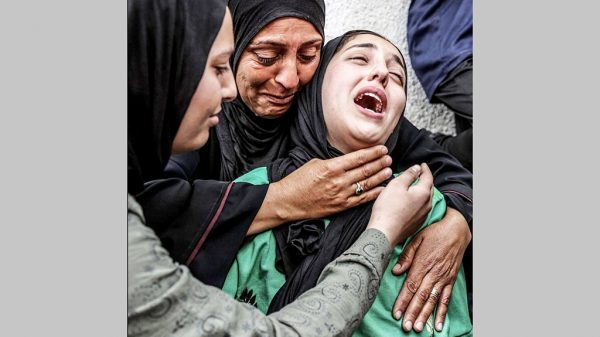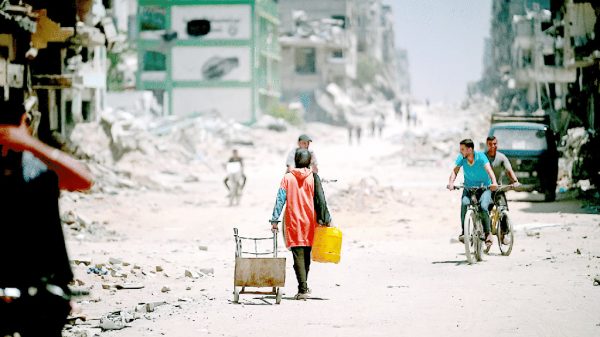A pertinent question is raised: what type of economic growth will be required to reduce poverty and minimise inequality in the near future? To dig the answer to this question, recent initiatives are mapped, and personal observations have put forward. The problem boils down to one thing – no short-cut way to get back on the SDGs track.Sustaining high rates of economic growth
Overseas employment of Bangladeshi workers is a major source of employment. However, time has come to change strategies for sending workers to abroad. Governments must underscore the “quality not quantity.” Workers must equip with technical knowledge and skill set as well as a workable level of English language. Sustained overseas employment is contingent on country-specific strategy and right implementation. This strategy illustrates country-wise labour market needs, skills development, and potential opportunities or bottlenecks for migrant workers.
The potentiality of high-value agriculture is yet to be fully utilised in Bangladesh. Addressing critical issues of seizing the opportunities of high-value agriculture is essential. Pertinent keys are diversification toward high-value agriculture and livestock, linking farmers to markets through continued investment in connectivity and infrastructure, and access to finance and skills development training programme. Governments must take necessary actions to open and reopen the doors of export trade of seasonal fruits (e.g., mango), vegetables (potato), and fisheries items. To this end, resolving the complexity of the GAP (Good Agricultural Practice) certification is essential. With the right mix of policies and investments, high-value agriculture can drive sustained economic growth through creating jobs, better productivity, and inclusiveness.
Bangladesh’s economic growth is export-led. The coronavirus crisis has substantially impacted the export and import businesses, which demand a review of export, import, industrial, foreign exchange, investment, and taxation strategies and policies.RMG industry diversification, products innovations, and exploring export opportunities around the world are principal strategies of keeping the momentum of RMG industry. Governments should reduce export time and cost of doing business.
The United Nations Conference on Trade and Development (UNCTAD) reports Bangladesh’s ICT industry grows 40% annually. Digital Bangladesh initiative recognises ICT as an engine of ‘growth’ and seeks to foster sustainable development, as “e-Government Master Plan” for Digital Bangladesh spell outs. With the continuous growth of the ICT sector and numerous new IT companies, this sector has a massive scope for creating millions of jobs for youth, eradicating the unemployment problem. However, this sector requires consistent policies for e-Government implementation, conducive legal and regulatory environment, and local investment and FDI through PPP initiative.
Eliminating PovertyThe rural non-farm sector accounts for 40 percent of rural employment, and more than 50 percent of rural income. Rural non-farm activities are a pivotal vehicle for poverty reduction in this country. Government must promote non-farm rural economy through a plethora of initiatives, including improving access to market and infrastructure, rural business development, financing vulnerable rural populations, and standardisation and quality assurance of marketable products, as Poverty Reduction Strategy Paper 2013 indicates.
Jobs are the cornerstone for development. Bangladesh needs to create more and better jobs, particularly in the manufacturing sector (for instance, textile industry, farming, and shipbuilding) to achieve its growth aspirations. Agriculture is the biggest employment generating sector, but still this sector has good scopes of expanding employment. Swift measures are due to generate high ‘value-added jobs’ in crop and aquaculture sectors. In this regard, investment in enhancing rural people’s and youths’ skills is significant.
Growth alone cannot overcome poverty, though growth is a necessary condition for tackling poverty. We need a greater focus on eradicating extreme poor. Export-led industrialisation can play an important role in rural poverty reduction, including extreme poverty reduction. The 7th Five Year Plan underscores “institutionally transformative growth” for extreme poverty reduction. To this connection, facilitating and investing in local producers’/farmers’ organisations is crucial.
Expansion of microcredit has played a proven role in eliminating poverty through starting small businesses, producing high value agriculture, and investing in farming innovations. Microcredit could be expanded for microenterprises (farm, off-farm, trading, and service sectors), value chain development, and technology deployment in various sectors, including agriculture, livestock, and fisheries. Making a balance of loan disbursement and collection processes, we need to devise innovative approaches (e.g., mutual understating) for the loan instalment collection.
Poverty can substantially be addressed by increasing social protection. Key strategies are increasing the access of the poor to production inputs (seed, irrigation water, power, and rural roads) and improving poor households’ access to and quality of education, health, and nutrition services. Other ways include stimulate women’s participation in the labour force and strengthen the coordination, targeting and coverage of social protection programmes.
Reducing Inequality
This country needs a complete data base of ‘poor’ people and a dedicated social protection programme. Reports shows about 50 percent relief fund goes to such people, who fall beyond the poverty line. Like India, a social protection programme can be established through issuing the “Adhaar Card”—a unique identification number issued by the government. One of the key purposes of issuing this card is to provide public subsidies and unemployment benefit schemes. We can take an initiative for establishing the same kind of card. It can be managed with our existing National Identification Card (NID).
Discrimination is obvious everywhere. Women are victims of discrimination and sufferings in many dimensions of society. Small ethnic communities face discrimination and are subject to extortion by land grabbers. Discrimination is more noticeable in the COVID-19 pandemic. Effective measures are crucial to eradicate it. For instance, government could take initiative for formulating and implementing an ‘anti-discrimination law’ to reduce discrimination institutionally.
Building a hunger-free Bangladesh is still a distant dream. Micro-nutrient deficiency/hidden hunger in this country is another emerging issue, despite Article 15 and 18 of the Bangladesh Constitution clearly stipulated that the state would secure these provisions. In the context of changing climate and COVID-19 pandemic, the disadvantaged sections (e.g., most Dalits, ethnic minorities, and others) are facing greater discrimination and deprivation in accessing basic services and rights. Governments should take initiatives for formulating the ‘right to food act’.
Resources must be infused into the rural economy to strengthen the base of the national economy. Sustainable access to rural financial service is one of the keys for strengthening rural economy. To this end, strategies must be effective and efficient, including ensuring sustainable improvement in access to finance for individuals (creation of the Postal Bank), and ensuring sustainable improvement in access to finance for small and medium enterprises (reducing risks and cost in lending to SMEs through improvement of credit information).
Social inclusion of marginal people in development effort is significant to eliminate inequality. Most of the policy instruments (e.g., 7th Five Year Plan and National ICT Policy) have underlined this matter. Likewise, governments planning is observed (adoption of Children Act of 2013 to protect children with regards to a wide range of potential exploitation and abuse), but it lacks proper implementation. Efforts are indispensable to expand rural education, health, and other basic social services to the tribal population.
Women make up almost half of the population; however, they remain one of the most at risk social groups of this country. Immediate actions are required for enhancing gender equality. Actions include political and legal empowerment for addressing women’s advancement and rights. Moreover, economic and social empowerment is pivotal for increasing and improving the opportunities for women’s employment, eliminating gender health and education disparities, and other purposes.
In sum, an unprecedented growth path is needed. To this end, prime minister’s bold initiatives for country’s continued progress is discernable. However, lack of proper project and programme implementation, corruption, ministerial in coordination, and unaccountability are the main culprits. Stringent policy measures to address these challenges are precursors to achieve SDGs, which must be stipulated in the 8th Five Year Plan and the 2nd Prospective Plan 2021-2041.
The writer is an Associate Professor, Dept. of Agricultural Extension and Information System, Sher-e-Bangla Agricultural University





























Leave a Reply